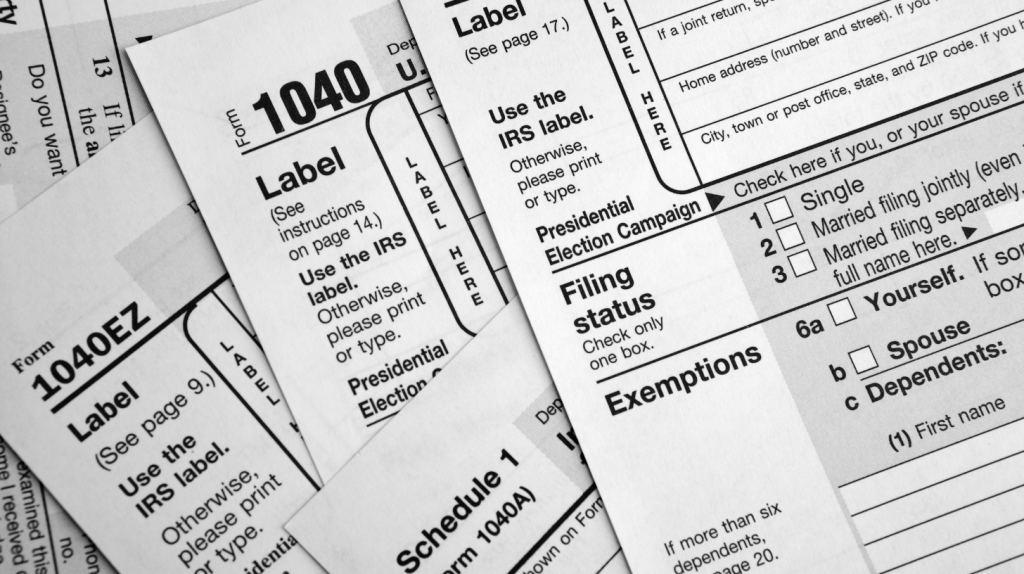Introduction
Are you wondering how the IRS classifies cryptocurrency for tax purposes? Whether you’re a seasoned crypto trader or just getting started, it’s crucial to understand the IRS regulations surrounding crypto tax. By doing so, you’ll be able to accurately report your transactions and fulfill your tax obligations.
In this comprehensive guide, we’ll explore how the IRS defines and categorizes cryptocurrency, the tax rates applicable to crypto transactions, and how to effectively navigate your tax returns. So, let’s dive in and unravel the mysteries of crypto tax!
Key Takeaways
- The IRS defines cryptocurrency as a digital asset that functions as a medium of exchange.
- Cryptocurrency is treated as property for tax purposes and subject to the same rules that apply to other capital assets.
- Crypto transactions are classified as either long-term capital gains, short-term capital gains, or ordinary income.
- The tax rate applicable to crypto transactions depends on various factors, including your overall income tax bracket and the duration of holding the crypto asset.
- Reporting your crypto income on your tax return requires careful record-keeping and accurate reporting of gains and losses.
- Properly completing crypto tax forms and taking advantage of applicable deductions can help minimize your tax liability.
Defining Cryptocurrency for Tax Purposes
The IRS considers cryptocurrency as a digital asset that functions as a medium of exchange, similar to traditional currency. A digital asset is any digital representation of value that can be traded or transferred, while a crypto asset is a type of digital asset that uses cryptographic techniques to secure its transactions and control the creation of new units. Cryptocurrency is treated as a capital asset for tax purposes and subject to the same rules that apply to other capital assets, such as stocks or real estate.

From the IRS perspective, cryptocurrency is not considered legal tender, and its value is not backed by any government or other authority. Crypto transactions are irreversible and pseudonymous, meaning that individuals can transact without disclosing their true identities. However, the IRS requires taxpayers to report their cryptocurrency transactions and pay taxes on any gains earned from those transactions.
How the IRS Categorizes Cryptocurrency
When it comes to cryptocurrency, the IRS categorizes it as property, particularly capital property. This means that transactions involving cryptocurrencies are subject to the same tax rules that apply to other types of property transactions. If you sell or exchange cryptocurrency for a profit, you’ll likely owe capital gains tax. Likewise, if you sell or exchange cryptocurrency at a loss, you may be able to claim a capital loss.

It’s important to note that cryptocurrencies, such as Bitcoin or Ethereum, are not considered currencies by the IRS. This means that they cannot be used to pay for goods or services directly, and any transactions that occur are instead treated as property exchanges. Additionally, because cryptocurrencies are not considered securities, they are not subject to the reporting requirements that apply to other securities, such as stocks.
Overall, understanding the IRS definition and categorization of cryptocurrency is essential for accurately reporting your transactions and fulfilling your tax obligations. By properly categorizing your crypto transactions as either short-term or long-term capital gains, you can effectively calculate your taxable income and determine the appropriate capital gains tax rate.
Classifying Cryptocurrency Transactions
Understanding how cryptocurrency transactions are classified is crucial for calculating your tax obligations. The IRS categorizes gains and losses from crypto transactions based on the duration of holding the asset.

If you hold a cryptocurrency asset for more than one year before selling or exchanging it, any gains or losses incurred will be treated as long-term capital gains or losses. On the other hand, if you hold the asset for one year or less, the gains or losses will be considered short-term capital gains or losses.
If you use cryptocurrency for purchases or exchange it for goods or services, it may be treated as ordinary income. This income is taxed based on your tax bracket for that year.
When calculating your taxable income, it’s important to factor in gains and losses from all your crypto transactions throughout the tax year. Capital gains tax rates for cryptocurrency are based on your overall income tax bracket and your duration of holding the asset. Long-term capital gains are generally subject to a lower tax rate compared to short-term gains or ordinary income.
Properly classifying your cryptocurrency transactions helps in determining your taxable income and the appropriate capital gains tax rate. Keep track of your crypto transactions and consult with a tax professional to ensure you are accurately calculating your tax obligations.
Tax Rates and Reporting Crypto Income
When it comes to reporting your crypto income for tax purposes, there are a few key terms you need to understand. The tax rate applicable to your crypto transactions depends on your overall income tax bracket and the duration of holding the crypto asset.

Long-term capital gains are generally subject to a lower tax rate compared to short-term gains or ordinary income. For the 2021 tax year, the federal income tax rates for long-term capital gains range from 0% to 20%, while the tax rates for short-term gains or income range from 10% to 37%.
Reporting your crypto income on your tax return requires careful record-keeping and accurate reporting of gains and losses. You’ll need to report your crypto transactions on Form 8949 and Schedule D, which are specific forms introduced by the IRS to report capital gains and losses from cryptocurrency.
If your crypto transactions result in losses, you may be able to deduct those losses from your taxable income, reducing your overall tax liability. However, be aware that there are specific rules and limitations around deducting capital losses on your taxes.
It’s important to note that if you use cryptocurrency for purchases or exchange it for goods and services, it may be treated as ordinary income and taxed accordingly. Keep in mind that failing to accurately report your crypto income can result in penalties and fines from the IRS.
By understanding the tax rates and properly reporting your crypto income, you can fulfill your tax obligations and avoid any potential issues with the IRS. Consider consulting with a tax professional or using reliable tax software to ensure accuracy and compliance with the IRS regulations.
When it comes to reporting your crypto income, navigating the relevant tax forms and deductions can be a challenge. The IRS has introduced specific forms for reporting capital gains and losses from cryptocurrency, known as Form 8949 and Schedule D. It’s important to fill out these forms accurately and completely to avoid any potential penalties from the IRS.

In addition to tax forms, there are also various deductions related to crypto transactions that you can take advantage of. If you incur losses on a crypto exchange, for example, you may be able to deduct those losses on your tax return. Similarly, any transaction fees associated with your crypto trades can also be deducted from your taxable income, effectively lowering your overall tax liability.
Keeping track of capital gains and losses from cryptocurrency transactions and taking advantage of applicable deductions can help you minimize your tax liability. Whether you are a frequent trader or a long-term investor in crypto, it’s important to file your crypto taxes accurately and in a timely manner to avoid any issues with the IRS.
Key Considerations and Best Practices for Crypto Tax
As you navigate the complex world of crypto tax, it’s important to keep a few key considerations and best practices in mind. First and foremost, remember that every transaction involving cryptocurrency, including exchanging one cryptocurrency for another, is subject to capital gains tax from a tax perspective. This means that if you sell crypto for more than you purchased it, you may be subject to a crypto tax rate on the profits earned.

Another important consideration is accurately tracking and reporting every transaction involving crypto, including if you exchange one cryptocurrency for another. When you exchange one cryptocurrency for another, it is considered a taxable event subject to capital gains tax. As such, it’s essential to keep detailed records of each transaction to correctly calculate your tax bill and file your crypto taxes.
When it comes to calculating your tax bill, keep in mind that the crypto tax rate varies depending on your overall income tax bracket and the duration of holding the crypto asset. If you hold the asset for more than a year, you may be subject to a lower long-term capital gains tax rate. However, if you hold the asset for less than a year, it may be subject to a higher short-term capital gains tax or taxed as ordinary income.
Make sure to file your crypto taxes accurately and on time to avoid any unnecessary penalties or issues with the IRS. You can file your crypto taxes using reliable tax software or consult with a tax professional to ensure compliance with the IRS regulations. Additionally, if you sell crypto assets, it’s important to factor in the tax on crypto and any potential tax liability when calculating your profits.
Overall, understanding the tax perspective on crypto, accurately tracking and reporting your transactions, and staying informed of the applicable crypto tax rate and regulations are key considerations and best practices in managing your crypto taxes. By remaining proactive and informed, you can navigate the world of crypto tax with confidence and avoid any potential issues with the IRS.
Conclusion
Congratulations on making it through this comprehensive guide on how the IRS classifies cryptocurrency for tax purposes. By now, you should have a solid understanding of how cryptocurrency is defined, how transactions are classified, and the tax rates and reporting requirements associated with crypto income.
While navigating crypto tax can be complex, it’s crucial to stay informed and proactive to avoid potential penalties or issues with the IRS. Remember to keep accurate records of your transactions, use reliable tax software, and consult with a tax professional if needed to ensure compliance with the IRS regulations.
By following the key considerations and best practices outlined in this guide, you can effectively manage your tax obligations in the world of crypto and minimize your tax liability. Keep these tips in mind when you file your crypto taxes to stay on top of your game.
FAQ
Q: How does the IRS classify cryptocurrency?
A: The IRS classifies cryptocurrency as a digital asset that functions as a medium of exchange. It is treated as property for tax purposes, similar to stocks or real estate.
Q: What are the different classifications of cryptocurrency transactions?
A: Cryptocurrency transactions are classified as either long-term capital gains, short-term capital gains, or ordinary income. The duration of holding and use of cryptocurrency for purchases determine the classification.
Q: What tax rates apply to cryptocurrency transactions?
A: The tax rate depends on factors such as overall income tax bracket and duration of holding the crypto asset. Long-term capital gains generally have a lower tax rate compared to short-term gains or ordinary income.
Q: How do I report my crypto income on my tax return?
A: Reporting crypto income requires accurate record-keeping and reporting of gains and losses. Specific forms, such as Form 8949 and Schedule D, are used to report capital gains and losses from cryptocurrency transactions.
A: Yes, there are potential deductions related to crypto transactions, such as transaction fees or losses incurred on a crypto exchange. Taking advantage of these deductions can help minimize your tax liability.
Q: What are some key considerations for crypto tax?
A: Every transaction involving cryptocurrency is subject to capital gains tax. It’s important to maintain accurate records and consult with a tax professional or use reliable tax software to ensure compliance with IRS regulations.
Q: How can I effectively manage my tax obligations in the world of crypto?
A: Familiarize yourself with the IRS regulations surrounding crypto tax and stay informed about the definitions, classifications, tax rates, and reporting requirements. Consult with a tax professional or use reliable tax software to navigate your tax returns with confidence.
